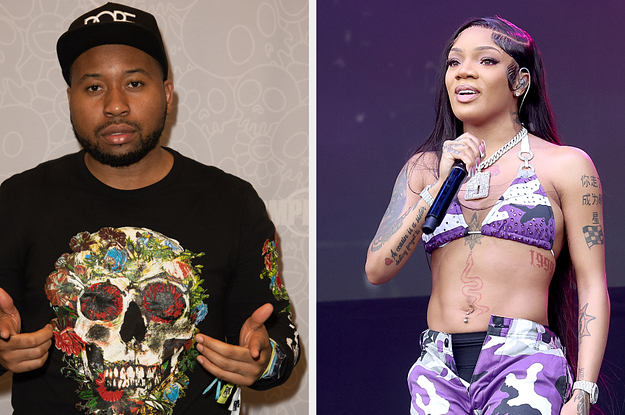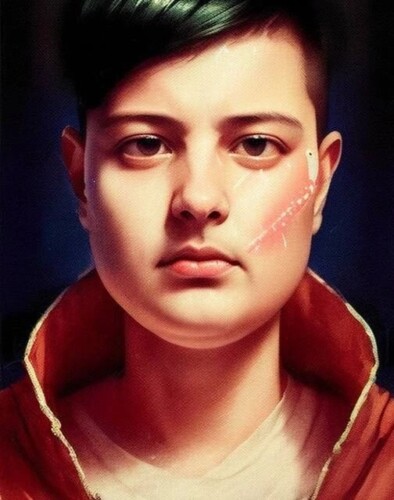Juneteenth on Bandcamp: 14 Releases to Listen and Buy
Juneteenth, which marks the end of slavery in the former Confederacy, has been celebrated as a holiday by many black Americans since shortly after the historic events of June 19th, 1865. This year, with the movement to end racial injustice back in the news, a number of companies have taken steps to formally recognize Juneteenth. One of them is Bandcamp, the independent music platform, which is giving its revenue share from all sales made on June 19th to the NAACP Legal Defense Fund in solidarity with protesters. That means any purchase you make on Bandcamp on that date will support both an independent artist and an important cause.
“The recent killings of George Floyd, Tony McDade, Sean Reed, Breonna Taylor, Ahmaud Arbery and the ongoing state-sanctioned violence against black people in the U.S. and around the world are horrific tragedies,” wrote Bandcamp CEO Ethan Diamond, who also promised to give an additional $30,000 per year to organizations in the fight against racism. “We stand with those rightfully demanding justice, equality, and change, and people of color everywhere who live with racism every single day, including many of our fellow employees and artists and fans in the Bandcamp community.”
Looking for a record or a piece of merch to start with? Try these 14 albums and songs by black independent artists, as recommended by Rolling Stone‘s staff. For more ideas, consult this crowd-sourced spreadsheet with more than 1,800 black musicians whose work is available for purchase on Bandcamp.
Moses Sumney, Grae
On this 20-song opus, Asheville, North Carolina-via-Southern California singer-songwriter-producer Moses Sumney promises to “surrender my life to something bigger than me.” Indeed, Grae is a rich vision of sonic and personal discovery, of all kinds of identity in flux. Sumney’s falsetto is a delicate weapon, and his sound exists on the space between R&B, art-pop, jazz, bedroom folk, and avant-rock, at once sprawling and intimate, whether he’s gently exploring romantic desire and possibility on the searching acoustic “Polly,” building bleary piano poetry on “Gagarin” (titled after the name of the first man ever to go into space), or playing with ideas of mortality, history, and masculinity on the dreamily hard-hitting “Virile.” The creative splurge that ensues can recall the Prince of Sign ‘O’ the Times or Solange’s A Seat at the Table. It’s the sound of an artist with nothing in his way but freedom.— Jon Dolan
Betty Davis and Danielle Maggio, “A Little Bit Hot Tonight”
Queen of Funk Betty Davis is an underrated figure in Black music history. She first made waves in the late Sixties, when she introduced her then-husband, Miles Davis, to the psychedelic rock that inspired his landmark album Bitches Brew. In the mid-Seventies, she became a cult figure with her own edgy, provocative funk-rock — a sound that became even more volcanic on-stage. Her disappearance from the music industry soon after an iconic three-album run was of her own accord, but she’s been dipping her toes back into the scene since her albums were re-issued in 2007 by the Seattle label Light in the Attic. Last summer, Davis released her first new song in 40 years through Bandcamp: the sultry and smooth “A Little Bit Hot Tonight,” which is just as sexy and brilliant as any of her early recordings. Instead of singing it herself, Davis enlisted Danielle Maggio, an ethnomusicologist and PhD candidate who is writing a dissertation on Davis. In a recent interview with the Pittsburgh Post-Gazette, Davis noted that she began writing the song in the late Seventies while living in Japan, and added that there could be even more new music released in the future. — Brittany Spanos
Bessie Jones, Get In Union
Compiled from the archives of prolific 20th century ethnomusicologist Alan Lomax, Get in Union highlights the recordings of singer Bessie Jones, whose performances with the Georgia Sea Island Singers from the late Fifties through the early Seventies worked to preserve traditional African-American song and dance and helped invigorate the mid-century folk revival in the U.S. You’ll likely recognize “Sometimes” from that Moby sample, but the other 59 tracks in the collection have so much more to offer, with Jones herself offering spoken anecdotes here and there. Spirituals like “Let Me Fly” are gorgeous calls for salvation; ramblin’ tunes like “Going to Chattanooga” helped form the basis for American blues; and if you pay close attention, you may hear in “No Hiding Place Down Here” the same folk standard that Nina Simone worked into “Sinnerman.” — Claire Shaffer
Son Little, Aloha
Son Little’s latest is an understated tour-de-force that gently moves away from both the unadorned soul of his debut and the stately pop of his 2017 follow-up, New Magic. Instead, Aloha is a rich collection that finds the Philly singer-songwriter exploring a textured cross-section of indie-rock and folk-funk on songs like “Mahalia” and “Belladonna.” See album centerpiece “Suffer,” which begins as a “Stairway to Heaven”-esque fingerpicked riff before evolving into an expansive soundscape that showcases Little at his genre-bending best. — Jonathan Bernstein
Algiers, There Is No Year
Algiers’ third album is a smart fusion of industrial rock and soul music, as frontman Franklin James Fisher howls about watching the world burn over sharp electronic rhythms. But it never teeters into a downward spiral, thanks to Fisher’s knack for hummable vocal hooks that rise above the jagged instrumentation. On “Dispossession,” which opens with the lyrics, “Run around, run away from your America, while it burns in the streets,” he bolsters his message that “freedom is coming soon” with a chorus of women singing “you can’t run away” between his declarations — and you can’t get it out of your head. Some of the songs are intentionally shadowy (you have to strain your ears to hear Fisher sing about denial over the buzzy synthesizers on “Hour of the Furnaces”), but Algiers balance these moments well with bursts of extraversion, such as on the Sixties R&B-influenced rave-up “Unoccupied” and the scratchy bonus track, “Void,” which sounds like Nine Inch Nails’ “March of the Pigs” transmitted through an intergalactic time warp into a punky alternate universe. It’s an album that’s angry, powerful, and unlike anything else — Kory Grow
Nicole Mitchell and Moor Mother, Live at Le Guess Who
Near the beginning of “Prototype Eve,” the 21-minute final track of a new live album by flutist-composer Nicole Mitchell and poet-soundscapist Moor Mother, Mitchell’s lilting, reverb-coated lines dance over a harmonium-like drone, conjuring the feel of a psychedelic raga. The passage is brief but transporting, and it’s indicative of the outer-limits appeal of this wholly sympathetic partnership. Crackly samples, whooshing electronics, Moor Mother’s incantatory spoken word, Mitchell’s airy textures, and even bits of birdsong flow together in a sonic trip that’s sometimes blissful and sometimes harrowing. Both artists have ties to legendary Chicago artists’ collective the AACM — Mitchell is a former chairwoman, and she and Moor Mother each appeared on last year’s 50th anniversary release by the organization’s flagship group, the Art Ensemble of Chicago. Their work here, grounded in the mindset of their avant-garde forebears but looking firmly forward, brings to mind the Art Ensemble’s core philosophy: “Great Black Music — Ancient to the Future.” — Hank Shteamer
Naeem, Startisha
It’s tempting to describe Naeem’s new album, Startisha, as a grand reinvention, but really it feels like an epiphany. Fourteen years ago, Naeem Juwan was known as Spank Rock, the rip-roaring, expertly ribald rapper whose songs could rattle everything from meager iMac speakers to club PAs. On 2006’s YoYoYoYoYo and 2007’s Bangers and Cash — an EP with a then-up-and-coming Benny Blanco — Spank Rock was at the peak of his party rap powers, but the genre label quickly grew constricting. In a recent New York Times interview, Naeem spoke about the limitations placed on him as a queer, black MC at the end of the Bush era: “It didn’t allow for the story to open up for a young black kid to have more thoughts or to have control over what he was saying.” Startisha arrives six years after the last Spank Rock EP (2014’s The Upside), and it feels familiar yet completely new. Its sound spans rap, dance, pop, and electronic in a way that reflects its creation over several years, in several cities with several collaborators (Sam Green, Grave Goods, Ryan Olson and even Bon Iver’s Justin Vernon). There are still big beats and club raps here that wouldn’t sound out of place on a Spank Rock record (“Let Us Rave,” “Woo Woo Woo”), but those are balanced by songs like “Simulation,” a thundering, politically-charged blast, and “Stone Harbor,” a tender dance floor ode to Naeem’s longtime boyfriend. On the album’s stellar title cut, Naeem shares a simple memory of a childhood friend, Startisha, dancing. There’s something unsettling in this vision, a pang that hints at how easily a life can be snuffed out, as Naeem wonders, “Do you still move this way?” But the song’s lasting image is one of perseverance: “My friend, if you sometimes/Think about me and wonder if I still move this way/I’m still moving/I’m still moving.” — Jonathan Blistein
Nailah Hunter, Spells
Bandcamp is full of soft instrumental music with new-agey or fantasy overtones, much of it available on cassettes that sound even better with the ambient fuzz and melt produced by an old tape deck. Los Angeles harpist Nailah Hunter’s debut EP is one of the best recent releases of this kind, with six songs full of starlight sweetness. Most are wordless, though on the highlight “White Flower, Dark Hill,” Hunter adds some of her own murmured vocals to great effect. In interviews, Hunter has cited the precedents set by the great Alice Coltrane and Dorothy Ashby, along with her harp contemporary Brandee Younger, while also noting the historic inequities around her instrument: “I hope that people [who] experience my art are reminded to go outside and appreciate the sun and the moon and our planet. I also hope to encourage other black girls to play the harp!…I want to work towards decolonizing the instrument, and raising awareness that harp is for EVERYONE.” — Simon Vozick-Levinson
William Parker, Trencadis
Since the Seventies, William Parker has been an integral part of the free-jazz vanguard in New York and beyond, collaborating with fellow giants in the idiom like Cecil Taylor and David S. Ware. But the Bronx-born bassist-composer’s output is impossible to pigeonhole, a fact illustrated by Trencadis, a sampler from Migration of Silence Into and Out of The Tone World, an upcoming box set featuring 10 distinct albums of all-new material. The tracks here — each one drawn from a different disc of the box — range from a delicate, vamp-driven composition for string quartet (“Lakota Song”) to an arresting work featuring overdubbed vocals by singer Lisa Sokolov (“Essence Calling Out”), a gospel-flavored solo piano piece played by Eri Yamamoto (“The Golden Light (Hymn)”), and an ominous soundscape set against a recording of James Baldwin speaking (“Baldwin”). Parker only appears as a player on a few of the selections but the warmth and expansiveness of his vision are unmistakable throughout. — Hank Shteamer
Anthony Braxton and Eugene Chadbourne, Duo (Improv) 2017
“[M]any of the idiomatic definitions that have brought us into this time space have more and more become irrelevant,” Anthony Braxton told Rolling Stone in 2019, at which point he’d spent more than 50 years illustrating that idea through his work. Elaborate operas, compositions for four orchestras or 100 tubas, pieces in which newly written music mingles with older work played from iPods, solo saxophone concerts — Braxton has done it all. But one setting he’s returned to again and again is the intimate duet. Duo (Improv) 2017, a new eight-disc box set that pairs Braxton with veteran guitar eccentric Eugene Chadbourne, joins earlier team-ups with fellow avant-garde masters including Derek Bailey, Roscoe Mitchell, and Marilyn Crispell. The communication here is intense, but the vibe is casual, as the two old friends locate their own logic in the moment. At times it manifests as pure abstraction; at times it’s jazzy and reflective; and at other moments it’s almost down-home — fitting for two musicians who share an equal devotion to Charlie Parker, Merle Haggard, and the rich history of experimental music, and for whom any perceived musical borders have always been entirely permeable. — Hank Shteamer
Kyshona, Listen
The new album from Nashville singer-songwriter Kyshona Armstrong is a tour-de-force southern roots hybrid of rock, pop, and R&B that alternates between bluesy despair and gospel-filled resilience. One highlight, “Fear,” is a stormy blues rocker about managing fright through simple acknowledgement. “You gotta call it by its name,” sings Armstrong, offering sage advice in dark times. — Jonathan Bernstein
Bartees Strange, Say Goodbye to Pretty Boy
When Bartees Strange attended a concert by the National, his favorite band, in D.C. last year, he was struck by how much he stuck out in the audience. “It hit me how few black folks were in the crowd,” he wrote of the experience, “and how this genre seems to exclude the contributions black people have made to it.” On Say Goodbye to Pretty Boy, Strange reimagines five of the Brooklyn indie band’s songs in his own genre-bending style, presented beneath cover art based on the Pan-African flag. The results are inspired, and reclaim Matt Berninger’s lyrics for Strange’s own musical and personal history. The string instruments on “About Today” are replaced with pulsing synths, drum machines, and his careful crooning voice. The impassioned “Mr. November” becomes a murmured personal mantra. The explosive “Lemonworld” takes from Strange’s days in the Oklahoma emo scene, and as the son of a military father, he twists Berninger’s mannered writing into something more literal: “I gave my heart to the army/The only sentimental thing I could think of.” — Claire Shaffer
Archie Shepp, Raw Poetic, and Damu the Fudgemunk, Ocean Bridges
The marriage of music and text has been at the center of Archie Shepp’s art for close to 60 years. So it’s not hard to draw a direct line from the urgent message and impassioned playing heard on classic Shepp statements like 1965’s Fire Music and 1972’s Attica Blues to 2007’s Chuck D-featuring Gemini and finally to Ocean Bridges, the 83-year-old saxophonist and poet’s new album with MC-producer Raw Poetic (who is Shepp’s nephew) and multi-instrumentalist Damu the Fudgemunk. The LP’s lengthy tracks unfold as loose studio jams, with Raw Poetic’s searching, socially conscious rhymes and Shepp’s sax — both his keening soprano and grittily majestic tenor — bubbling to the surface in turn. It’s the latest surprising statement from a musician who clearly views “avant-garde” as a philosophy rather than a style. — Hank Shteamer
Angel Bat Dawid, “Transition East”/”No Space Fo Us”
If you haven’t already heard this Chicago clarinetist’s excellent 2019 debut, The Oracle, go check that out — few records will make you feel more like you’re voyaging among distant stars while also keeping your feet firmly rooted on our troubled earth. Then, if you’re looking for more of Angel Bat Dawid’s far-out sounds of liberation, turn up her latest single and let it help you dare to imagine another world. — Simon Vozick-Levinson
Popular on Rolling Stone





